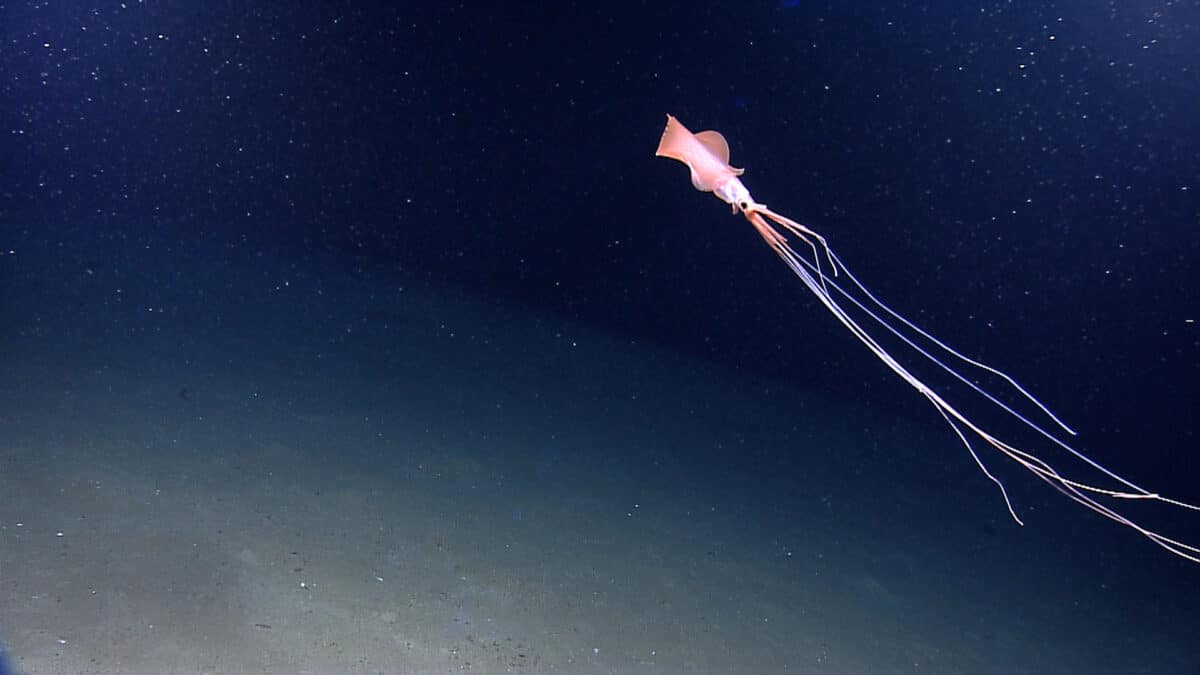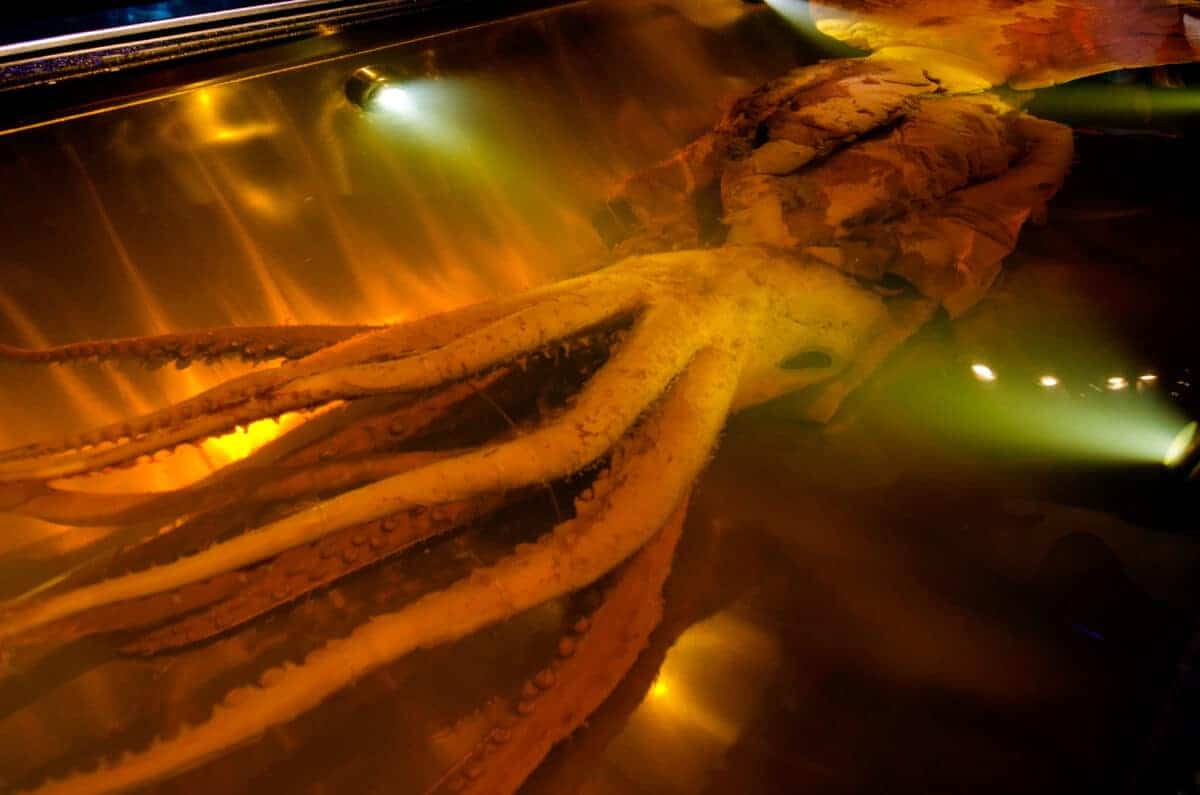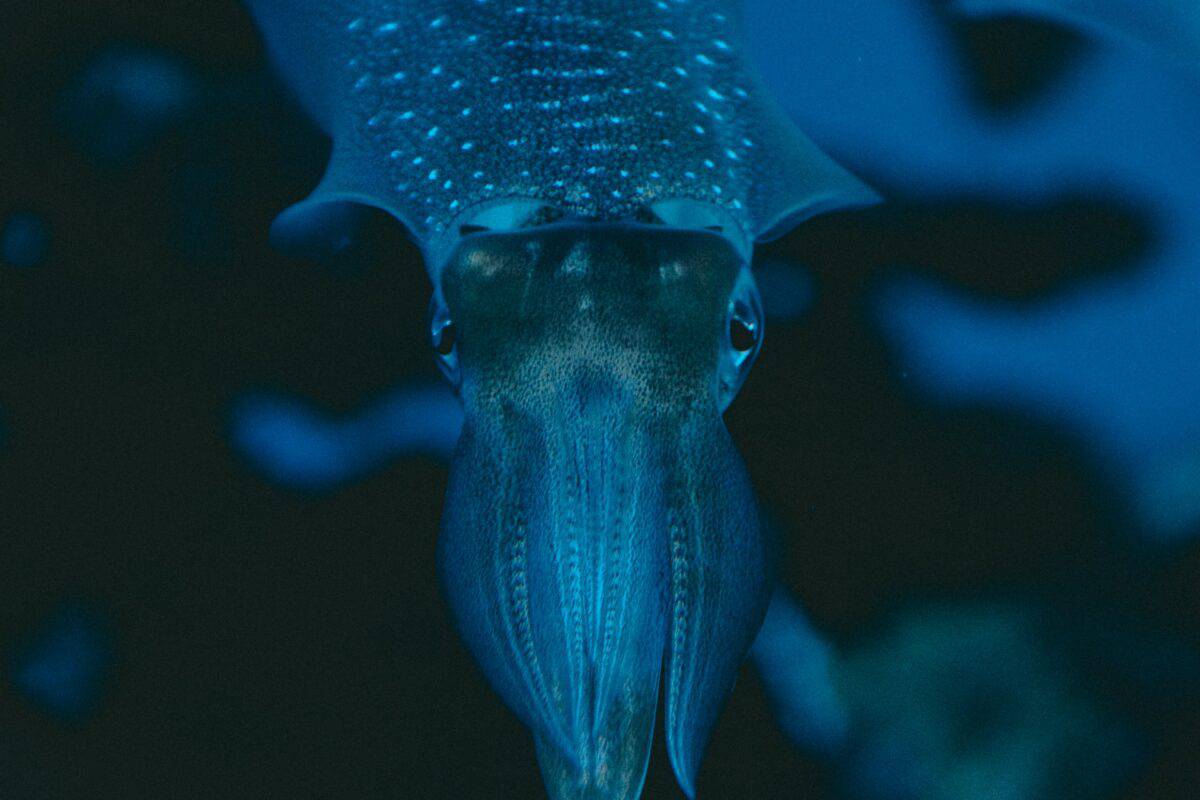The mysterious giant squid has long captivated the imagination of people worldwide. These elusive creatures, which inhabit the deep ocean’s twilight zone, have rarely been observed in their natural environment. However, recent encounters and scientific research have raised intriguing questions about their behavior. Could giant squids be getting bolder? This article explores this possibility and delves into the fascinating world of these enigmatic marine giants.
Understanding the Giant Squid

The giant squid (Architeuthis dux) is a colossal marine invertebrate known for its incredible size and elusive nature. These squids can grow up to 43 feet in length, making them one of the largest living cephalopods. Their life cycle, behavior, and ecology remain largely unknown due to their deep-sea habitat, which makes them challenging to study.
Historical Sightings and Captures

Historically, most information about giant squids came from dead specimens that washed ashore or were caught in fishing nets. Such encounters were rare and did not provide much insight into the squid’s natural behavior. These creatures seemed to be content with their shadowy, undersea existence, away from human scrutiny.
Recent Encounters with Giant Squids

In recent years, technology has allowed scientists and explorers to film giant squids alive in their natural habitat. These videos suggest that giant squids might be more adventurous than previously thought. In 2012, a Japanese expedition captured the first footage of a live giant squid in its deep-sea environment, making headlines worldwide.
Technological Advancements in Squid Research

Advancements in underwater cameras and remotely operated vehicles (ROVs) have revolutionized our ability to study deep-sea creatures. These technologies have enabled us to observe giant squids more frequently, potentially accounting for what appears to be an increase in bolder behavior. High-definition cameras and low-light sensors contribute to capturing clear images of these creatures deep underwater.
Changes in Ocean Conditions

Marine scientists have speculated that changing ocean conditions could influence the behavior of giant squids. Factors such as water temperature, food availability, and habitat changes could drive squids closer to the surface or coastal areas, leading to more frequent encounters with humans.
Potential Reasons for Perceived Boldness

The reasons behind the perceived increase in boldness among giant squids are varied. Some researchers propose that it may not be the squid that is changing but rather our increased ability to detect and observe them. Others suggest that environmental pressures could cause these typically solitary creatures to venture beyond their comfort zones.
Giant Squids and Human Interaction

Encounters with giant squids remain rare, and these creatures are not known to be aggressive towards humans. Nevertheless, as more people venture into their habitats through deep-sea exploration and fishing practices, the chances of interactions may increase.
Filmmaking and the Giant Squid

The allure of capturing the giant squid on film has driven many filmmakers and documentary teams to the depths of the oceans. The excitement surrounding these expeditions contributes to the perception of increased boldness as these creatures are brought into the public eye more frequently through media exposure.
Natural Predators of the Giant Squid

Giant squids are preyed upon by sperm whales, with evidence of their epic battles found in the form of squid beaks in whale stomachs. The pressure from such predators may influence squid behaviors, potentially pushing them towards the surface while fleeing or seeking new food sources.
Ecological Impacts

As apex predators of the deep sea, changes in the behavior or population dynamics of giant squids could have significant ecological impacts. Squids play a crucial role in their ecosystem, and understanding their behavior is important for comprehending broader oceanic ecological changes.
The Role of Light and Attraction

Like many deep-sea creatures, giant squids may be attracted to artificial lights used in underwater exploration. This attraction could contribute to their apparent boldness, as they move towards these lights and closer to human-operated equipment or vessels.
What the Future Holds for Giant Squid Research

Research on giant squids is still in its infancy compared to other marine species. As technology advances and ocean exploration grows, scientists are hopeful that we will continue to unravel the mysteries of these remarkable creatures. Understanding whether giant squids are indeed becoming bolder will require ongoing study and observation.
Conclusion: The Intrigue of the Deep Sea

The prospect of giant squids becoming bolder is a fascinating area of research that continues to capture public and scientific interest. While increased encounters may suggest a shift in behavior, they also reflect our growing capacity to explore and understand the corners of the Earth that were once beyond our reach. As we peer into the depths of our oceans, the mysterious and awe-inspiring nature of the giant squid reminds us of the vastness of the natural world and the secrets it still holds.
- The Surprising Way Kangaroos Show Affection - August 21, 2025
- The Funny Reason Pandas Tumble So Much - August 21, 2025
- 11 Prehistoric Creatures That Would Be Terrifying If They Were Still Alive - August 21, 2025

